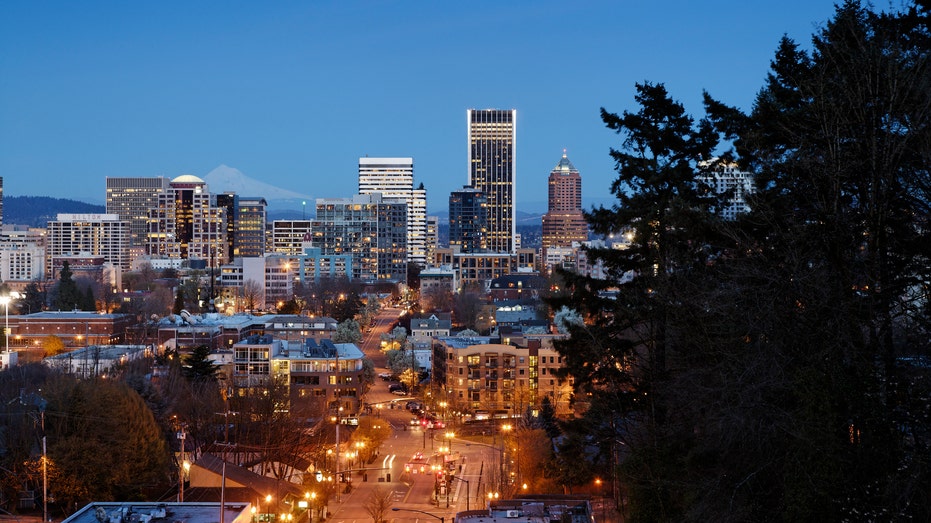After three years of legalized hard drugs and rampant overdose deaths in Portland, Oregon, lawmakers this month rightly said enough is enough. There is a better option: strong progressive economic policies and ending untethered drug use promises to help repair the Portland image, attract new businesses and retain others downtown. This new more pragmatic progressivism we see shows a major shift in our state.
Governor Tina Kotek and the Democratic-majority legislature decisively steered away from ultra-progressive drug policies this year. The state’s evolution reflects an increasing recognition among bipartisan policymakers of the need for practical solutions to address challenging social issues while becoming a more business-friendly state. And I have seen this work before.
I hail from Detroit and contributed to the city’s post-bankruptcy restructuring, which is currently drawing in investors, innovators and young adventurers. Coming to Portland, I was struck by the similarities between my new city today with that of my youth in Detroit’s Cass Corridor.
LEMURS AT THE OREGON ZOO ENJOY A FLORAL SNACK COURTESY OF THE ZOO’S HORTICULTURE TEAM
Like Detroit’s blend of academic and economic opportunities juxtaposed with the stark realities of urban decay and crime, Portland’s downtown today grapples with a similar set of opportunities and challenges.
This was exacerbated by voter-approved Measure 110 which ushered in the most lenient drug laws in the nation in attempt to encourage drug treatment and cut down addictions. Despite the well-meaning intentions of Portland voters, the unintended outcomes have been severe.
Like Detroit, beneath visible urban challenges, Portland pulsates with vitality. Greater Portland boasts an extraordinary industrial base, fosters the education of trailblazers, and remains a strategic West Coast location for any sector.
The repeal of Measure 110, effective September 1, signals a commitment to growth, creating a safer and more conducive business climate. Unfortunately, Measure 110’s failures reminded Portlanders of the importance of basic order to maintain a city’s quality of life.
And when polls this year showed 56% of voters favored repealing the measure, bipartisan legislators went for it, allowing local governments and law enforcement agencies the option to arrest or pursue substance abuse treatment for hard drug users. Kotek’s leadership here mirrors Portland’s metamorphosis, as she emerges as a centrist West Coast leader.
Her work to allocate $240 million in tax incentives to 15 semiconductor companies also underscores Portland’s dedication to embracing change and propelling progress in ways it simply had not done before to attract business. In June 2023, the state had approximately $11 million in cash incentives available for companies expanding their footprint in the state.
Oregon’s political shift on tax incentives has solidified greater Portland’s position as the nation’s leading location in the semiconductor sector, shaping America’s new economy in this critical industry that employs 40,000 people in the region.
Moreover, this strategic move aligns seamlessly with the overarching federal effort for manufacturing investment, most notably from the CHIPS Act. Last December, the governor led a Portland central city task force of public and private sector leaders. We created solutions to the city’s more pressing challenges and a long-term strategic vision for economic prosperity for the region.
CLICK HERE FOR MORE FOX NEWS OPINION
This month, Multnomah County and Portland leaders unveiled an ambitious goal to cut the region’s unsheltered homeless population in half by 2026, by adding hundreds of new shelter beds, building more affordable housing, and expand access to mental health and substance abuse treatment.
Recently, Portland city council introduced an innovative Downtown Business Incentives Credit Program, expanded enterprise zones, and is exploring new Tax Increment Financing districts, signifying a turning point in the economic posture of the city nestled between the majestic Cascade Mountains and the tranquil vineyards of the Willamette Valley.
Combined, these new incentives and the reversal of legalized open-air hard drug use show a region committed to turning the page on three years of economic uncertainty. With these changes, business leaders can now confidently consider expanding in the Portland area, knowing that favorable policies are in place to support their success.
Driving down drug use and crime creates economic wins. In Detroit, policies like these ended much of the dilapidation I witnessed in my youth. That city now experiences high-priced condos, retail, and the newly erected Little Caesars Arena (home to two of the city’s pro sports teams, the Detroit Red Wings and Detroit Pistons).
Similarly, Portland’s allure transcends its urban confines. Today, as Portland confronts its challenges head-on, it stands on the cusp of emerging stronger, more vibrant, and more resilient than ever before.
As someone who talks to corporations seeking fresh industrial land, high-value talent, and a high quality of life, the repeal of Measure 110 will help further reposition Portland once again as the Pacific Northwest’s prime choice for business. My new hometown of Portland is charting a course toward once again being the West Coast’s best value for business.





